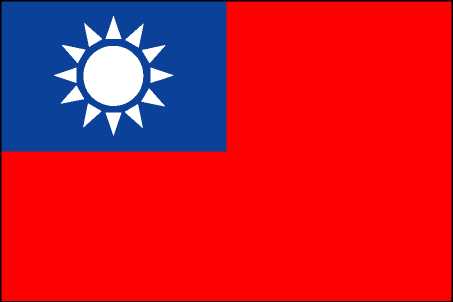Now think about all of the ones who call themselves "Chinese".
And now, think of those who consider themselves "Taiwanese".
Now consider the physical and cultural similarities between those who consider themselves "Chinese" and "Taiwanese". Most likely, you'll find that these two groups look almost physically identical and share multiple cultural similarities.
 Now consider what would happen if you called a "Taiwanese" person "Chinese" or vice versa. If you're like me, or anyone who has Taiwanese friends, you'll know that upon being called Chinese, the Taiwanese person would instantly correct you, either casually or harshly.
Now consider what would happen if you called a "Taiwanese" person "Chinese" or vice versa. If you're like me, or anyone who has Taiwanese friends, you'll know that upon being called Chinese, the Taiwanese person would instantly correct you, either casually or harshly. -----
Why is it that the Taiwanese take so much offense to being called Chinese? After all, they share identical physical traits, and their cultures have many similarities. Why is it that there is so much friction between them? The answer comes from the late period of the Chinese Civil War in which two distinct cultural identities were formed.
 The Chinese Civil War was a conflict between the then in power Nationalists led by Chiang Kai Shek (who was backed by the United States) and the Communist leader Mao Zedong. The war initially favored Chiang Kai Shek, but then quickly turned sour when Mao gained support from the popular masses and eventually forced Chiang Kai Shek to retreat to the island of Formosa. This island would later be renamed Taiwan. It was here that the final battle of the Chinese Civil War was fought and where two different cultural identities were formed.
The Chinese Civil War was a conflict between the then in power Nationalists led by Chiang Kai Shek (who was backed by the United States) and the Communist leader Mao Zedong. The war initially favored Chiang Kai Shek, but then quickly turned sour when Mao gained support from the popular masses and eventually forced Chiang Kai Shek to retreat to the island of Formosa. This island would later be renamed Taiwan. It was here that the final battle of the Chinese Civil War was fought and where two different cultural identities were formed.In the mainland, the Communist forces of Mao Zedong were victorious. Communist China quickly became a dominating force, exerting influence over the events of the Korean War and the Vietnam War. The "Communist Chinese" identity quickly became synonymous with the "People's identity" in that the Communist ideals were directed at the masses. It is there that modern Chinese-American identity is derived. Almost all those who came to America after the defeat of Chiang Kai Shek were those who did not fit into the Communist system. To them, the word "Communist" was taboo and associated with terror, hate, and oppression. Those who came to the here sought refuge from regime that was Mao Zedong.
On the other end of the spectrum, there are those who consider themselves Taiwanese. These people are the survivors of the Chinese Civil War. Their cultural identity is scarred with defeat from the Communists. Like those who came to America from the Chinese mainland, they too held a strong hatred for the Communists. But their hatred stemmed not from oppression, but rather from defiance. The Taiwanese saw themselves as righteous compared to the Communists. When they came to America, it was by choice.
 Those who are Taiwanese pride themselves in their existence. They were never oppressed, but rather, defeated. Now the first generation that came here to America carries the bitterness of defeat with them.
Those who are Taiwanese pride themselves in their existence. They were never oppressed, but rather, defeated. Now the first generation that came here to America carries the bitterness of defeat with them.Despite a mutual hatred of the Communist regime, Taiwanese-Americans and Chinese-Americans both have conflicting identities in America.
-----
Edwina "Edi" Dai
-----
http://upload.wikimedia.org/wikipedia/commons/3/38/Taiwan_NASA_Terra_MODIS_23791.jpg
http://telematicsnews.files.wordpress.com/2009/06/taiwan_flag1.jpg
http://news.bbc.co.uk/2/hi/asia-pacific/country_profiles/1285915.stm
http://news.bbc.co.uk/2/shared/spl/hi/asia_pac/04/taiwan_flashpoint/html/chinas_stance.stm

No comments:
Post a Comment